
If you didn’t already!
All office hours are now posted
New rooms are on the syllabus
What are languages, really?
Language is fractal
‘Right’ and ‘Wrong’ in Language
‘Prescriptive’ vs. ‘Descriptive’ Grammar


America is ridiculously monolingual compared to the rest of the world
We talk about people having an “L1” (first acquired language(s)), “L2” (second acquired language), and so on
Don’t forget that many folks have more than one language, and they can blend!




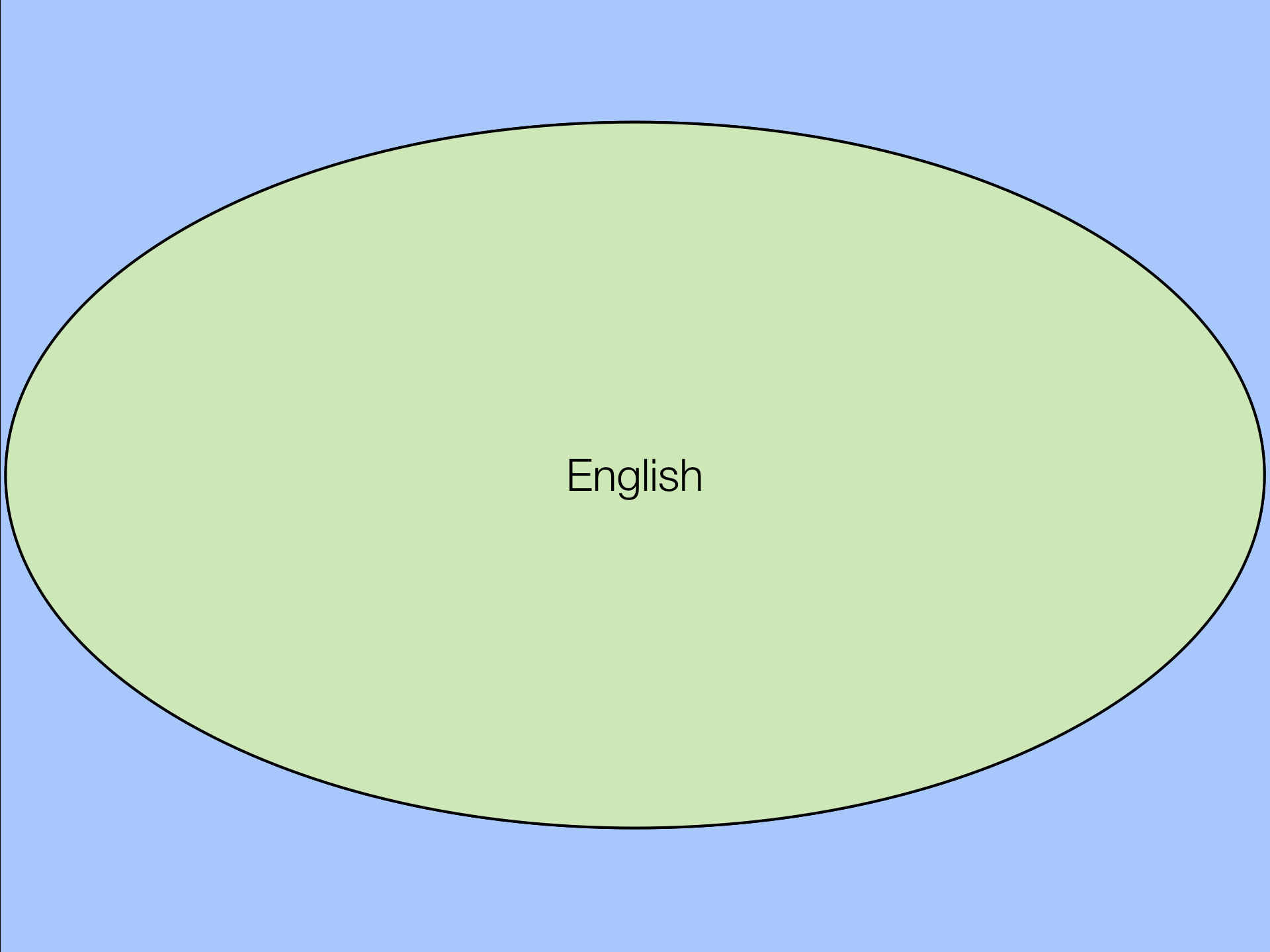
| ### There are many different types of English |
 |
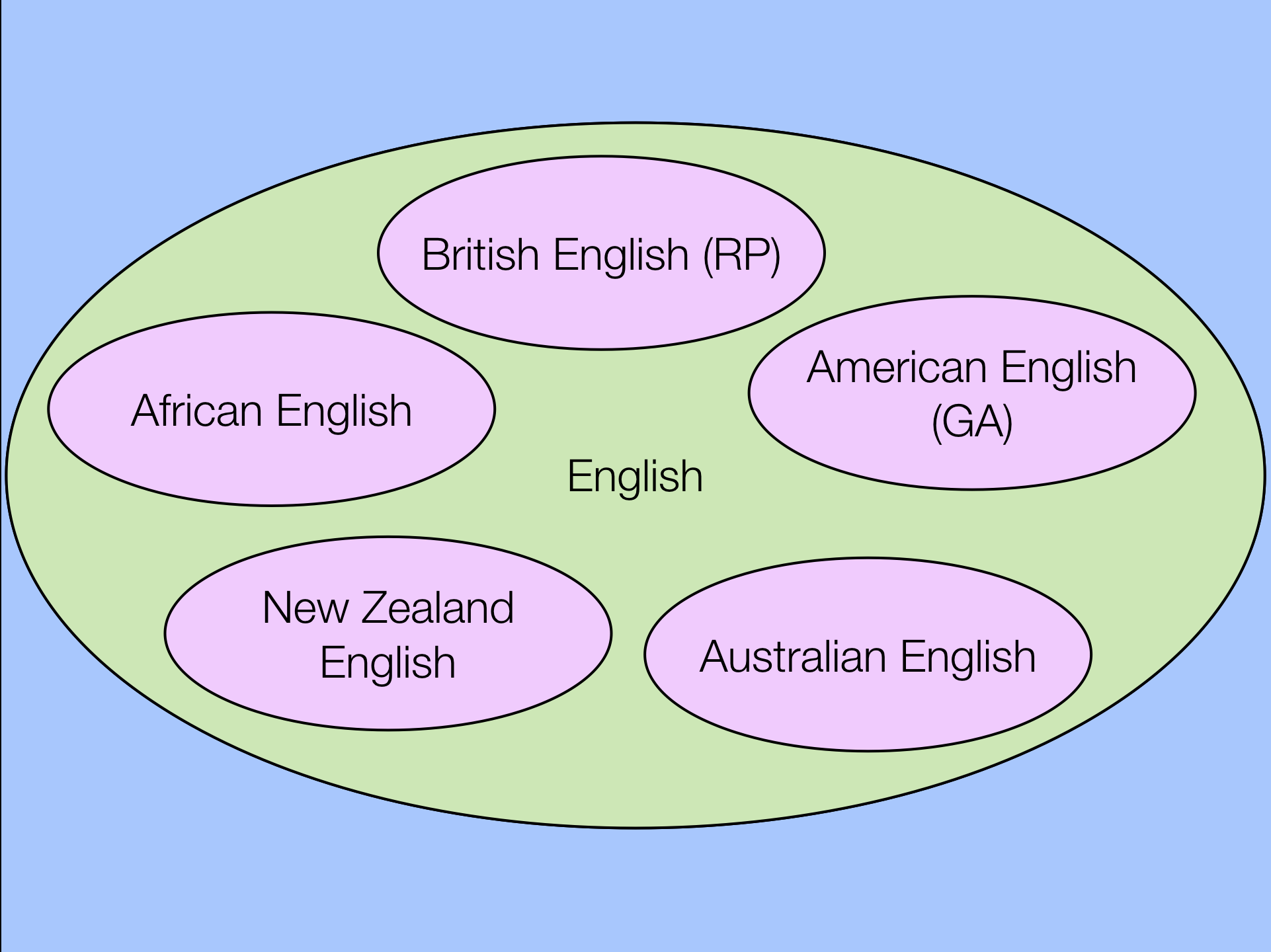
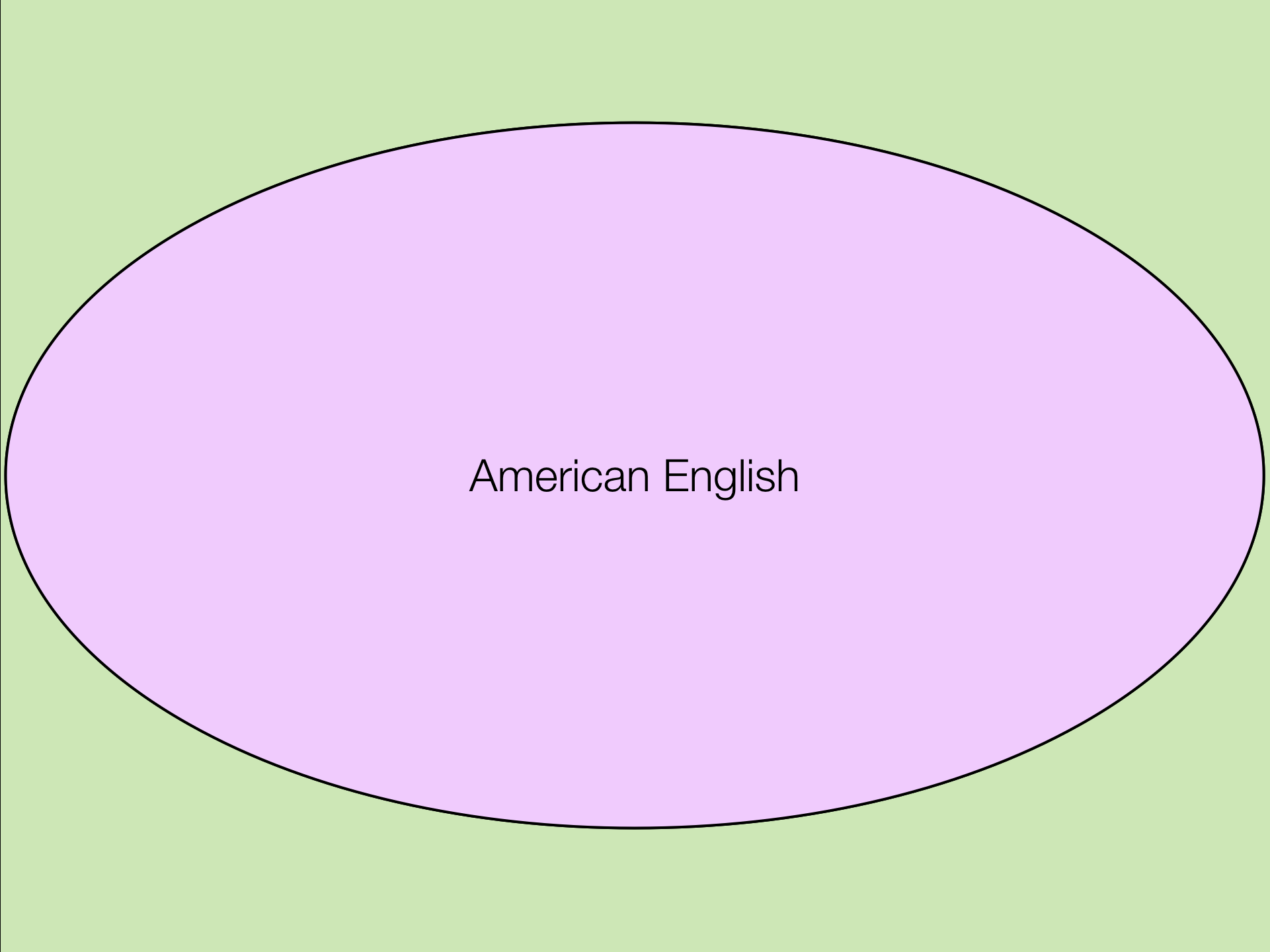
 |
| (and many more!) |
Syntax
Pronunciation


Pop
Soda
Soda-Pop
Coke
Cooldrink
| ### What’s the generic word for a fizzy, sweet beverage? |
| A) Pop |
| B) |
| C) Soda-Pop |
| D) Coke |
| E) Cooldrink |
(Sorry, I couldn’t resist)
| ### The Great Soda Debate |
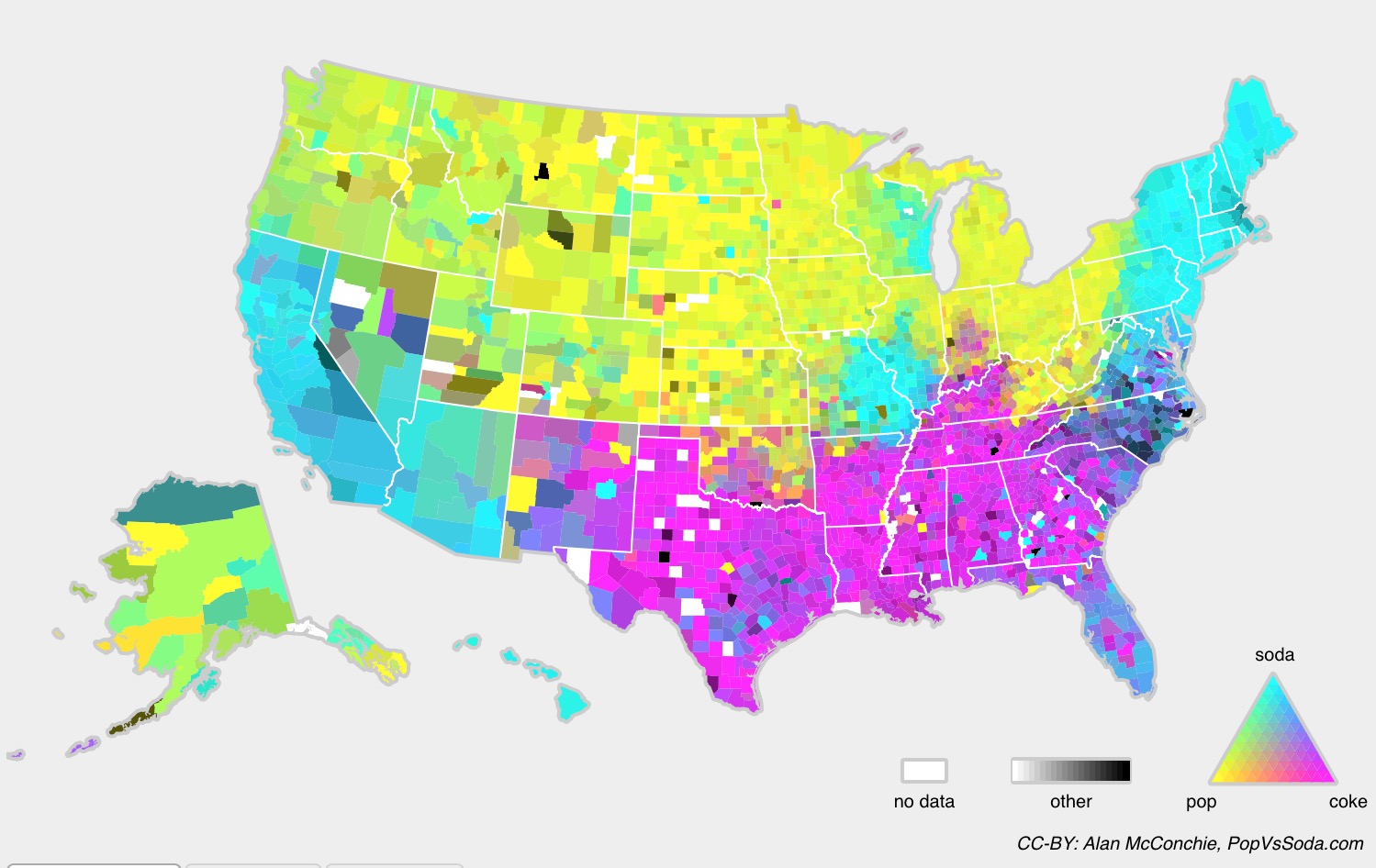 |
| (Courtesy of http://popvssoda.com) |

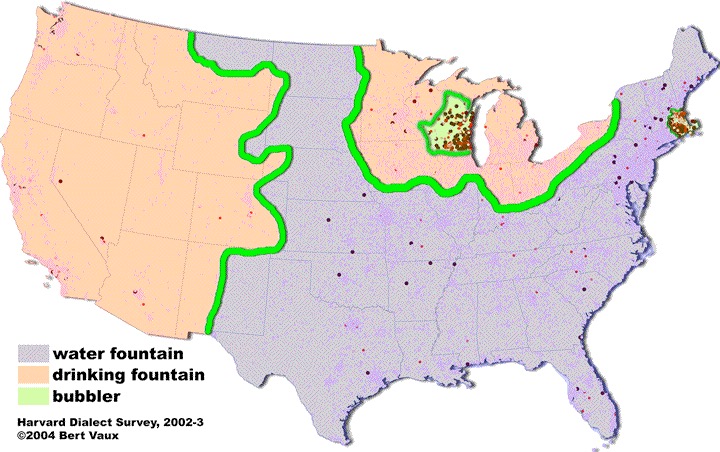
This is as much a function of attitude as location
‘Rootedness’ plays a major role (c.f. Paul Reed’s Work)
There are many aspects of a person’s identity that add up to “dialect”

A sociolect is a dialect shared among members of a certain social group
People can have influence from more than one sociolect at once
We often switch sociolects when in different social situations
Using a sociolect is a way of showing affiliation with a certain identity
Some sociolects have prestige, others don’t
These are the bread and butter of sociolinguists
See “It Wasn’t ‘Verbal Blackface.’ AOC Was Code-Switching.”

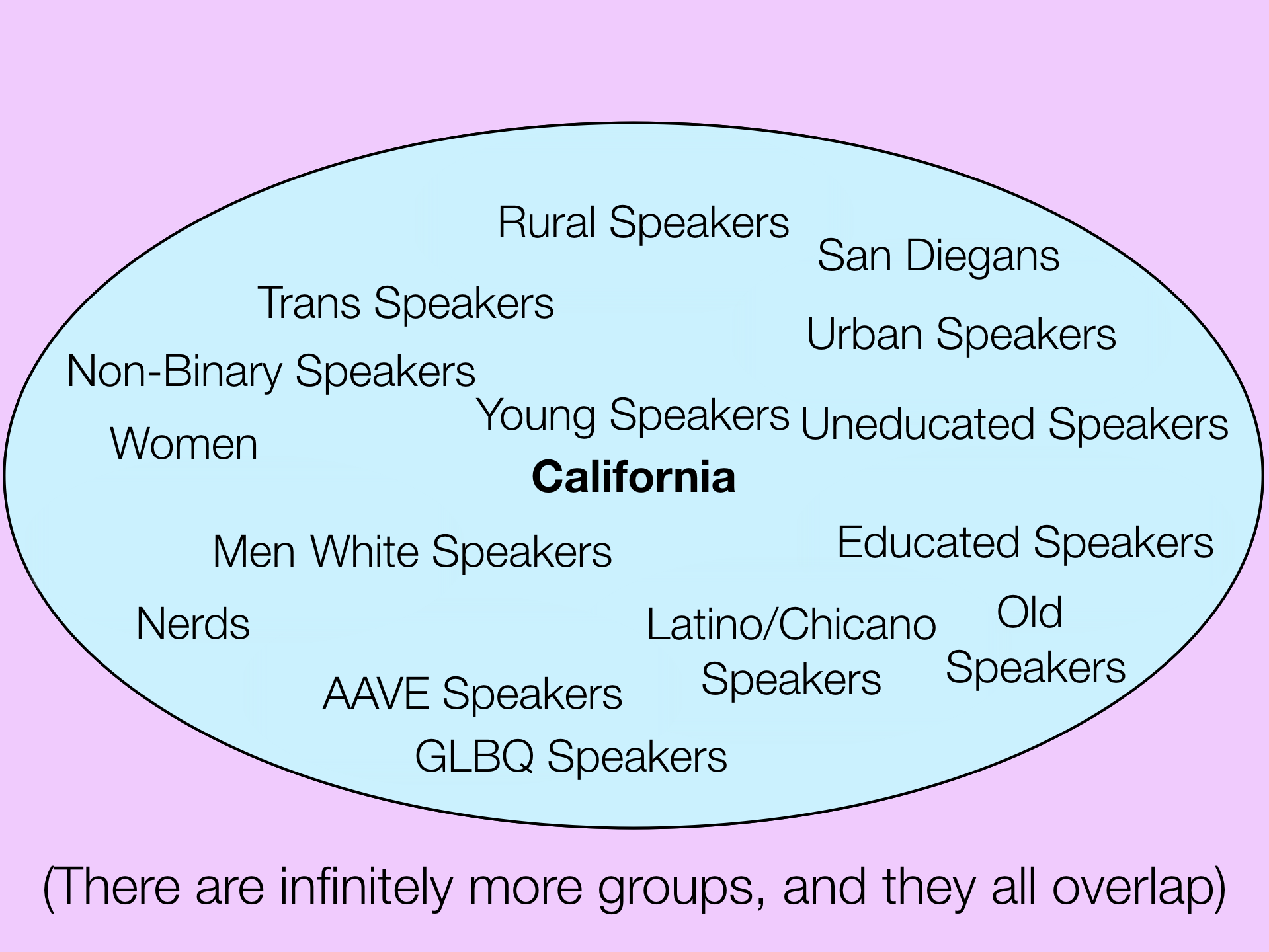 |



You use language in a certain way, that way is your “idiolect”
Your esoteric pronunciations
The expressions and catch phrases that you use and prefer
The specific meanings that given words or phrases have to you
The features which you’ve inherited from your region(s) or social group(s)
Odd spellings or emojis you use (LOL vs. lol, “Thanx”)
Your writing style, speech style
Your individual set of speech organs (which may change the way your speech sounds)
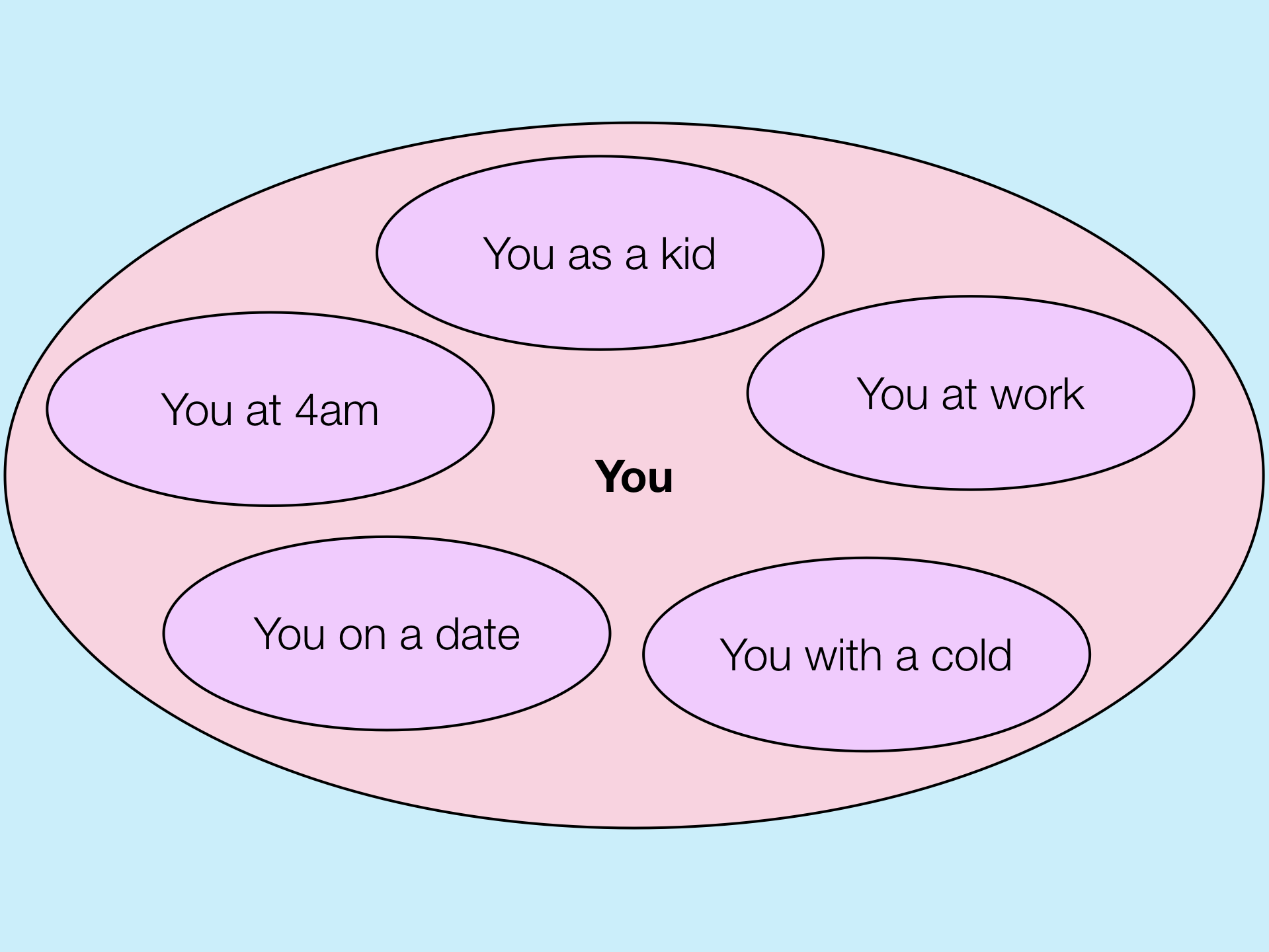

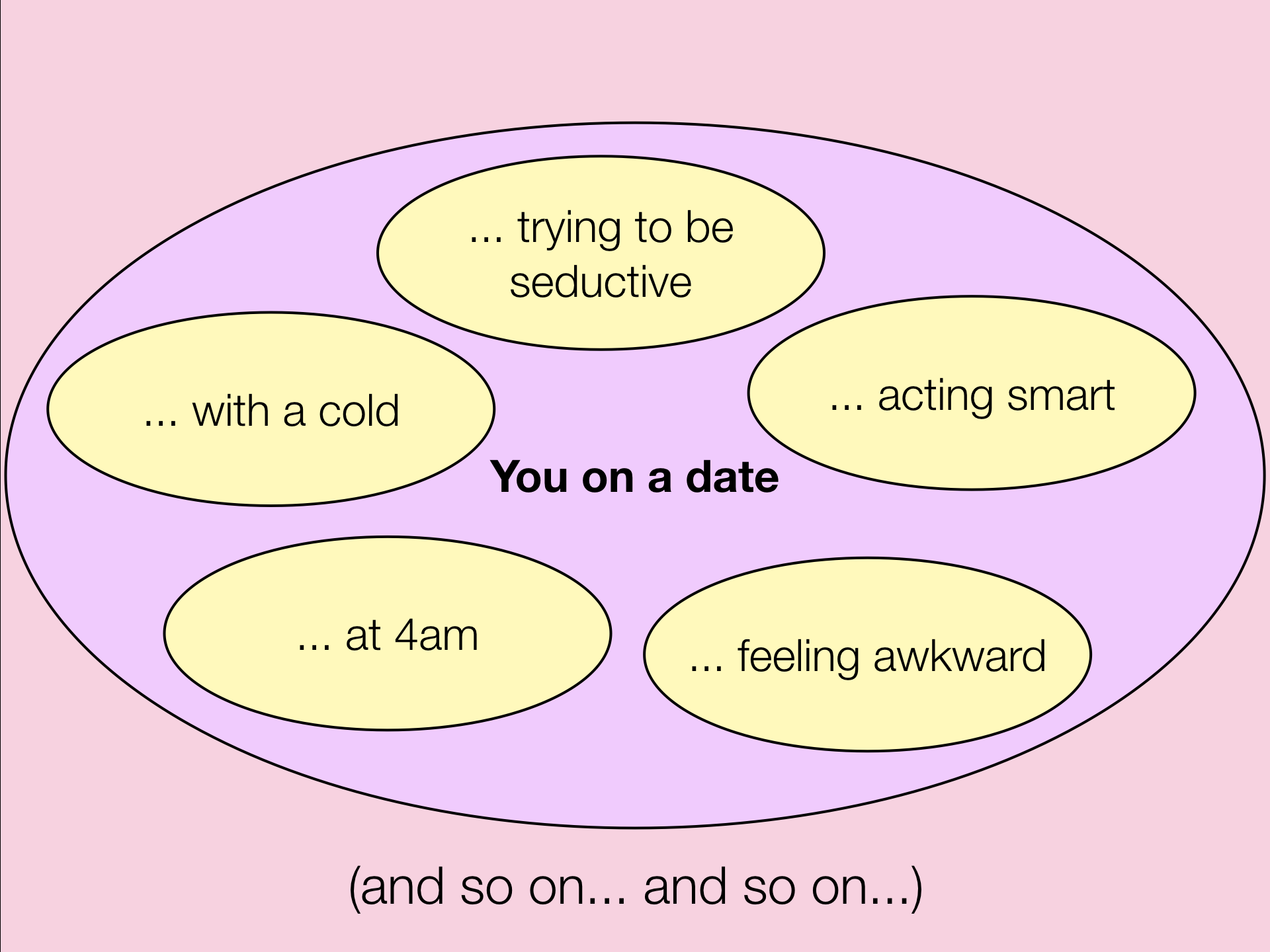

You see larger patterns at first
Then you look closer and find more patterns and structure
Then you look closer and find more patterns and structure
Then you look closer and find more patterns and structure
Then you look closer and find more patterns and structure
Then you look closer and find more patterns and structure
… you get the idea
It can be hard to define what is a single language
The distinction between ‘language’ and ‘dialect’ is often political
If you like them, they speak a dialect of your language, otherwise, whole different language
Everybody speaks at least one dialect, sociolect, and idiolect
People often have features from multiple dialects or sociolects or languages
Each of these things overlap in complicated ways
There’s a reason that the social elements of language have an entire subfield
Dialects are a particular form of language used by a certain social or geographical group of people
A sociolect is a particular social group’s specific dialect
Your idiolect is your unique way of using language and speaking
Your speech and language is variable from situation to situation, from word to word
As you look closer and closer at language, you find more patterns and complexity, not less
Dialect
Sociolect
Idiolect
Emojiolect
Dialect
Sociolect
Emojiolect
Not just one prestigious or ‘correct’ variety
Not just the ‘academic’ or ‘mainstream’ dialects
Not just what goes in textbooks or dictionaries
… and as such …
It’s hard to pin down which one would be correct
The situationally ‘correct or ’appropriate’ variety is about social context
‘Correct’ is a social judgement, not a linguistic one
“John went with Tina to the cat show”
“The boy flame take watchingsly”
“Correct Horse Battery Staple”
“Esta oración no es inglés”
I’m not sure which is grammatical
The grammatical rules of the language, dialect, and sociolect being spoken which describe how (a group of) people actually talk or write.
‘Grammatical’ sentences are in harmony with the local rules
People ‘stumble’ over ungrammatical sentences
When something is descriptively ungrammatical, it’s often hard to understand
| ### Symbol Usage Note |
| Linguists mark ungrammatical sentences with a star, questionable ones with a ? |
| - *The boy flame take watchingsly |
| - ?Which friends has Thomas painted a picture of them? |
Also known as ‘AAVE’ (African American Vernacular English) or historically, ‘Ebonics’
Negative Concord
Habitual be
Copula deletion
These grammatical rules are followed carefully by speakers of AAE
Damnit.
They use the grammar of their dialect as carefully as you do yours!
Let’s try a different set of grammar judgements…
‘I never know what I should write with’
‘I don’t know who she photographed’
‘Ron and Jerry stayed home last night’
‘We hope to considerably advance machine learning technology’
I’m not sure which is grammatical
‘I never know what I should write with’
‘I don’t know who she photographed’
‘We hope to considerably advance machine learning technology’
I’m not sure which is grammatical
Made up or social rules that prescribe how people should talk or write
They are not universally observed
They do not generally affect your ability to be understood
They’re often based in written ambiguity (e.g. there, they’re, their)
They’re often quoted from one particular source (Strunk and White, 🤣)
They’re often associated with a specific setting or institution
“Say ‘I’ll make do’, not ‘I’ll make due’”
“All sentences must include a verb”
“Always include the punctuation inside the quote”
“In-text citations should be surrounded by parentheses”
“Emojis cannot be used in professional correspondence”
“Say ‘I’ll make do’, not ‘I’ll make due’”
“Always include the punctuation inside the quote”.
“In-text citations should be surrounded by parentheses”
“Emojis cannot be used in professional correspondence”
“Me and Mark are going clubbing”
“I hate polar bears, there paws are too big.”
“Frank Suzanne live Dallas”
“Herbert ain’t gone to the store yet”
“Michael Bay luvs 2 desecrate good cartoonz.”
“Me and Mark are going clubbing”
“I hate polar bears, there paws are too big.”
“Herbert ain’t gone to the store yet”
“Michael Bay luvs 2 desecrate good cartoonz.”
We don’t believe there is a ‘correct’ variety
A rule which a large number of people don’t follow isn’t a real rule
And if you speak a non-standard variety, we think that’s awesome!
Sometimes, people truly believe the rules are real
Often, they’re trying to help
Sometimes, they’re trying to show superiority
… and frustratingly often, it’s because …
“Somebody needs to teach these inner-city kids to be more articulate”
“You’re in America, learn to speak English right”
“You’re so shrill, you should be more lady-like in your speech”
“He’s a nice boy, but why does he have to talk so Mexican?”
“Damned teenage girls filling their speech with [insert thing we all do]”
People love describing languages as ‘rough’ or ‘unevolved’ or ‘angry’ or ‘primitive’ or ‘romantic’ (and so on)
They often cite characteristics found in huge numbers of languages as ‘evidence’ of this
These are usually social judgements applied to people via their languages
Be careful with these kinds of language ideologies, as they can be hurtful
Most people mean well
There’s value to learning how to talk like the Old People with Power want you to talk in some contexts
… but it’s important to think carefully about these things
It’s why we spend so much time talking about the difference between descriptive and prescriptive grammar in LIGN 101
… and it’s why we’ll spend the rest of the quarter talking about descriptive grammar, rather than prescriptive grammar
Language is fractal with massive amounts of variation
It’s hard to identify a ‘correct’ variety, and that’s a social thing anyways
Descriptive rules describe what’s actually being said
Prescriptive rules prescribe what somebody thinks should be said
Linguists care about descriptive grammar, and don’t tend to buy into ‘prescriptive rules’
Read Fromkin’s chapter on ‘Phonetics’ if you’d like
… and don’t be a pedantic twit